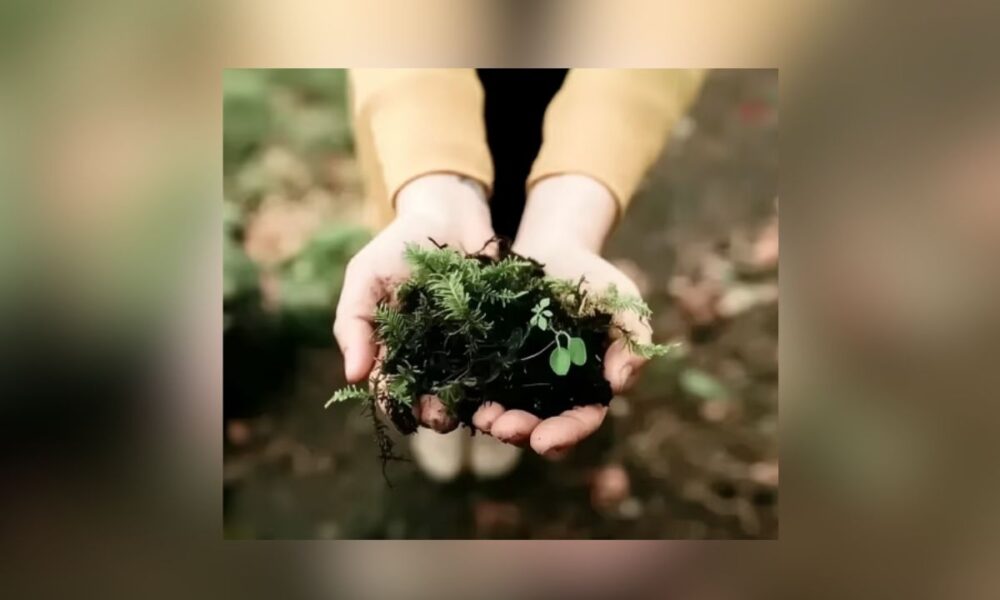Texans are eyeing a greener way to go: body composting.
New Jersey recently became the 14th state to legalize “natural organic reduction,” commonly known as human composting, after Gov. Phil Murphy signed the measure into law earlier this month. The change allows funeral homes and facilities across the state to begin offering the service within the next year.
The development has drawn interest in Texas, where the practice is not yet legal but has gained a following among residents who say the process offers an environmentally friendly and more meaningful alternative to traditional burial or cremation.
Supporters describe body composting as a transformation of human remains into fertile soil, which can then be returned to families or donated to land restoration projects.
“I realized this process would allow for me to make one final contribution to the planet,” April Wisebaker of Richmond, who has pre-arranged her own composting plans with Earth Funeral, told The Dallas Express via email.
Others point to the personal symbolism.
“Natural, eco-safe, and to give back to Mother Earth through soil transformation is what I found to be my choice,” Nancy Lee of Dallas told the outlet, noting that her choice “fills me with peace.”
Families who have gone through the process say it can also ease tensions during difficult times.
“I have a Dad tree in my living room,” said Christian Stines of Austin, who arranged the composting of his father’s remains.
“Each family member I spoke to, when offered a container, was very excited to participate in Dad’s final wishes … to literally return him to nature with their love and blessings.”
The appeal reaches far beyond the environmentally minded, said Tom Harries, co-founder and CEO of Earth Funeral, in an interview with The Dallas Express. “To me, it doesn’t really matter whether you’re a West Coast environmentalist or a Southern outdoor sports person,” he said. “The desire to be returned to nature, to a beautiful piece of land, and to contribute toward the restoration of that land in perpetuity is really appealing for a lot of people.”
Body composting typically takes place over the course of 30 to 45 days. The body is placed in a vessel with organic materials such as wood chips and organic mulch. Natural microbes break the mixture down into soil, which can then be spread by families in gardens and meadows or used in conservation projects.
Harries’ company has seen a surge of demand nationwide, including in Texas, where bodies are currently transported to states such as Nevada for the process.
“People shouldn’t have to transport their loved ones to other states to undergo a process that aligns with their beliefs and preferences,” Harries said.
But the practice has not been cleared by the Texas Legislature. House Bill 2200, filed earlier this year to legalize human composting, died in committee without further action.
Critics argue that human composting shows insufficient reverence for the dead and risks disrupting longstanding burial traditions.
“The end result of the human composting process is also disconcerting. … There is nothing distinguishably left of the body to be placed in a casket or an urn and laid to rest in a sacred place where Christian faithful can visit for prayer and remembrance,” the U.S. Conference of Catholic Bishops said in a 2023 statement.
The conclusion of the statement, which was joined by Michael F. Olson, the Bishop of Fort Worth, read, “The way that we treat the bodies of our beloved dead must always bear witness to our faith in and our hope for what God has promised us.”
Still, advocates say momentum is growing as more states choose to recognize the method. Proponents note that cemeteries face dwindling space and rising costs, while cremation relies on fossil fuels and emits greenhouse gases.
“It’s the future for so many reasons,” said Stines. “It also ticks all the boxes about concerns people have with traditional methods. In the end, it is infinitely personalizable… it was by far the easiest aspect, and brought me the most comfort.”
For now, Texans interested in body composting remain in a holding pattern — dying, as it were, to see their state follow suit.


